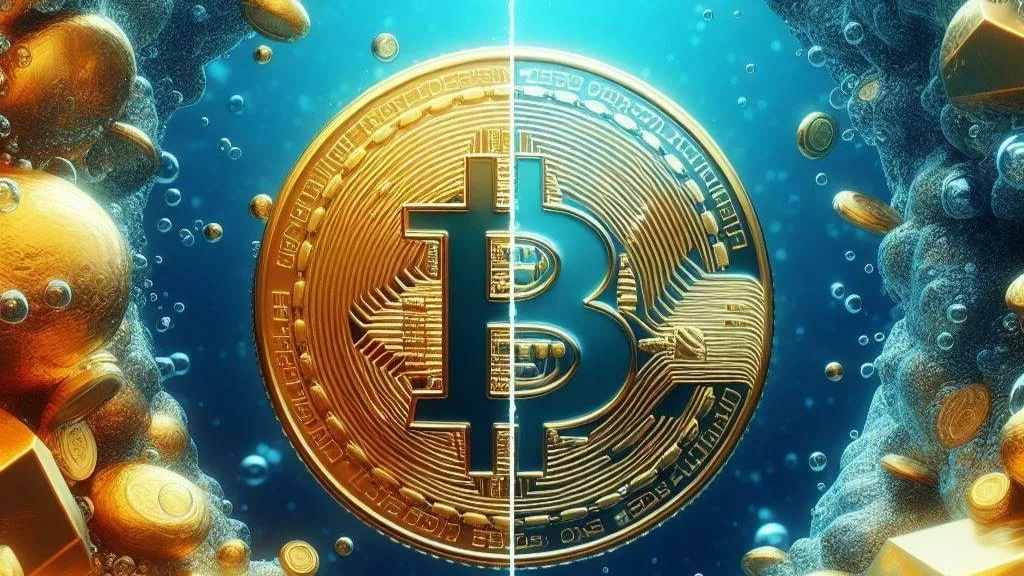
Gold, revered for its scarcity and intrinsic value, has long held sway over the financial markets. With a legacy spanning over 6,000 years, it has weathered the storms of time, emerging as a symbol of wealth and stability. However, recent advancements in mining technology threaten to erode its once-unassailable status. The accelerated production rate in recent decades casts a shadow over Gold’s scarcity narrative, raising concerns about oversupply in the years to come.
On the other hand, Bitcoin, the poster child of the digital revolution, presents a compelling alternative. Its decentralized nature and fixed supply offer a stark contrast to the fluctuating dynamics of traditional currencies. With the recent Halving event on April 20, Bitcoin’s scarcity is further underscored, with rewards for miners halved every four years. This deliberate reduction in supply serves to cement its status as a deflationary asset, immune to the whims of central banks and governments.
Recent remarks by renowned on-chain analyst Willy Woo shed light on the shifting dynamics between gold and Bitcoin, sparking a debate that has gripped the investment community. According to Woo, advancements in mining technology have led to an erosion of gold’s scarcity narrative, threatening its status as a safe-haven asset.
Over the past 6,000 years, gold has reigned supreme as a symbol of wealth and stability. Its limited supply and enduring value have made it a preferred choice for investors seeking refuge from economic uncertainty. However, with the advent of modern mining techniques, the once-untouchable aura of gold is beginning to fade.
Woo points to the accelerated production rate of gold in recent decades as evidence of its diminishing scarcity. While gold may have been scarce in the past, the relentless pursuit of profit has driven miners to extract it from the earth at an unprecedented pace, raising concerns about oversupply in the years to come.
On the other hand, Bitcoin’s scarcity is built into its very code, with a fixed supply of 21 million coins. This inherent limitation, combined with the Halving event that occurred on April 20, further reduces the rate of new Bitcoin issuance, making it increasingly scarce over time.
Since its inception, the Bitcoin network has undergone several Halving events, each one reducing the rewards issued to miners by 50%. In the current epoch, miners receive 3.125 BTC for every block they successfully mine, down from 6.25 BTC in the previous epoch. This gradual reduction in supply ensures that Bitcoin becomes scarcer with each passing day, potentially enhancing its appeal as a store of value.
In the battle for supremacy, both assets vie for the coveted title of safe-haven investment. Yet, their trajectories diverge in the face of shifting market trends. While Gold basks in the glow of centuries-old tradition, Bitcoin charts a bold new course, embraced by a growing legion of digital evangelists. The allure of decentralization and borderless transactions beckons to those disillusioned by the constraints of traditional financial systems.
As investors navigate these uncharted waters, the choice between Bitcoin and Gold hinges on a delicate balance of risk and reward. While Gold offers a tangible asset with a proven track record, Bitcoin embodies the spirit of innovation and disruption
Get the latest Crypto & Blockchain News in your inbox.